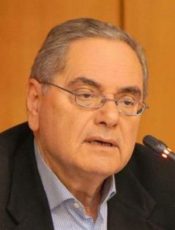The problem with understanding Russia today rests more with the professional aspirations of hundreds of specialists versed in Kremlinology and in the aggressive pursuits of the former Soviet Union rather than with the realistic window into what happens today in the land that hosts the football world cup and the policy targets of its present leadership.
From personal experience I can affirm that the motivation behind the decisions that influence the momentum of the economy and Russian society today does not emanate from anti-Western attitudes or stereotypes. Most decision makers are young, do not hold the preconceived ideas of the Soviet era and they are, many of them, graduates of Western higher-education institutions that specialize in issues of contemporary importance. I've met business leaders and public-sector managers who have studied at the best universities in the West (i.e. Oxford, Cambridge, the University of Chicago, MIT, Harvard) and are determined to work for measurable, efficient, and visible results.
These kind of attitudes can be found in every region in that vast country. Ethnic Tatars, for example, are the toughest negotiators and simultaneously most flexible dealmakers I have encountered.
Found in the Urals, Crimea, and predominantly in the city of Kazan by the Volga River, these Russian citizens successfully blend their ancestral commercial instincts and the determination and discipline of the Russian bureaucracy with that indigenous talent for creating strategic delays that is found so often in their national culture.
In short, Russia today is essentially no different, as far as its inclinations and objectives are concerned, from the rest of the world. So where are the distinctions? First of all, Russia is not a democracy in the way we sometimes think of it here in the West. Some years ago President Putin described his style of government as "the dictatorship of the law." Some of his strategic advisers have spoken insistently of "disciplined democracy." In other words, all the nonsense and manifestations of anomie that are present in the streets of many of our cities are not tolerated there. Freedom of speech however is not necessarily curtailed. There are many media outlets in Russia (e.g. The Moscow Times and Kommersant) that do not shy away from anti-government commentary and frequent criticism. There are no exaggerations however, no vitriolic headlines or passionate, personal characterizations or attacks. Self control runs deep.
Patriotism is also very strong. Compared to the days of its Soviet past Russia has lost huge swaths of its territory. Vladimir Putin has renewed a national feeling of self-respect and restored a sense of socioeconomic balance. Russia is a normal, fully-fledged national entity once again. It is a fact that his efforts and his main concerns have been directed toward providing his country with a greater sense of its own dignity and encouraging the rest of the world to view it with respect. On the issue of radical Islam for example, Putin has proven to be a no-nonsense leader. He grasped immediately the reality that ISIS could only be defeated using boots on the ground. Thus he helped implement an alliance between Assad's military in Syria, volunteer fighters from Iran, the Shia militias from Iraq, and the Kurds. This combined force managed to push back the Islamists and bring ISIS to the brink of extinction in Syria.
Russia of course is now and has always been an unknown entity to foreign observers. Famously, Winston Churchill defined Russia as "a riddle, wrapped in a mystery, inside an enigma." The thoughts, intentions, and attitudes of the decision makers in the state apparatus and private entities are always enshrouded in two or even three layers of inscrutability. An outsider almost always finds himself confronted by a wall of suspicion and disbelief. However, after an initial phase of distrust, which is sometimes agonizingly long, Russians open up and cooperation becomes candid and constructive.
For Russia the World Cup will offer another window to the world. I anticipate it will be a positive experience for everyone.









